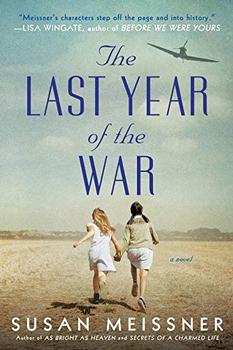Summary | Excerpt | Reading Guide | Reviews | Beyond the Book | Readalikes | Genres & Themes | Author Bio

PART ONE
1
Los Angeles, 2010
I've a thief to thank for finding the one person I need to see before I die.
If Agnes hadn't slipped her way into my mind to steal from it willy-nilly, I wouldn't have started to forget things, and Teddy wouldn't have given me the iPad for my birthday so that I could have my calendar and addresses and photos all in one place, and without the iPad, I wouldn't have known there is a way to look for someone missing from your life for six decades.
It's been a very long while, more years than I care to count, since I've spoken Mariko's name aloud to anyone. And yet, from the moment I found out Agnes is not only here to stay but here to take, my childhood friend has been steadily on my mind, having emerged from that quiet corner where the longest-held memories reside. It's these oldest and dearest of my recollections that presently seem to be the hardest for Agnes to filch, but I know the day is coming when she'll find every moment I've ever had. The thief will uncover those ancient memories—the good ones and the bad—and she will take them, as gently as dusk swallows daylight. Right now, however, my memories of Mariko are still mine.
I've been told by my doctor that this Alzheimer's I've got will eventually kill me.
It is so strange to be diagnosed with a fatal disease and not feel sick. What I feel is that I've been saddled with a sticky-fingered houseguest who is slowly and sweetly taking everything of mine for her own. I can't get rid of her, the doctor assured me, and I can't outwit her. I've named my diagnosis after a girl at my junior high school in Davenport—Agnes Finster—who was forever taking things that didn't belong to her. My own Agnes will be the death of me; I know this. But not today.
Today I am sitting at LAX at a Delta gate waiting to board a plane. I have written Mariko's name—first, last, and married surname—and her daughter's name in felt-tip on the inside of my left wrist, and Ritz-Carlton, San Francisco on the inside of the right one, just in case I forget why I'm at the airport with a carry-on bag at my feet. Agnes is adept at seizing little moments of my day, and when she does, she takes control of my mouth and then says the most ridiculous things, some of which I can remember when I'm me again and some that I can't. Yesterday she asked the mailman where the children were. For heaven's sake. Pamela and Teddy are not children anymore. They are both married. Retired. They have gray hair.
I feel badly that Pamela and Teddy don't know about this trip I am taking, but I couldn't tell them. They wouldn't have allowed me to go. Not alone. Maybe not at all. They don't know about Mariko, and they don't know about Agnes, either, but I believe they suspect something is up with me. I have seen it in the way they look at me and more so in the way they look at each other. They are wondering whether it's time to move me out of my home of sixty-three years, perhaps into one of their homes. Or maybe to a facility of some kind. A nice one, they would say. But still. A facility. They are thinking the iPad that Teddy gave me will reveal whether my recent trouble with remembering routine minutiae and even calling to mind how many grandchildren I have is more than just the simple forgetfulness of an eighty-one-year-old woman. I'm not the only one using the iPad. I think they are using it, too, to gauge my faculties by watching how I use it or by seeing if I remember that I have it at all.
Pamela convinced me to surrender the keys to my car five months ago, after I had trouble finding my way home from the supermarket. Or maybe it was five weeks ago. I can't recall at the moment. I don't have the keys; I know that. And my garage is empty. I had to take a cab for that doctor's appointment where I learned the truth, though Pamela would have taken me. I had a feeling I knew what the doctor would tell me, and I wanted to hear it alone. I wrote my address on the bottom of my shoe to make sure I could tell the cab driver on the return trip where to take me. Agnes delights in dancing away with my address, like a devious child, and then giving it back to me hours later.
Excerpted from The Last Year of the War by Susan Meissner. Copyright © 2019 by Susan Meissner. Excerpted by permission of Berkley Books. All rights reserved. No part of this excerpt may be reproduced or reprinted without permission in writing from the publisher.
Some books are to be tasted, others to be swallowed, and some to be chewed on and digested.
Click Here to find out who said this, as well as discovering other famous literary quotes!
Your guide toexceptional books
BookBrowse seeks out and recommends the best in contemporary fiction and nonfiction—books that not only engage and entertain but also deepen our understanding of ourselves and the world around us.